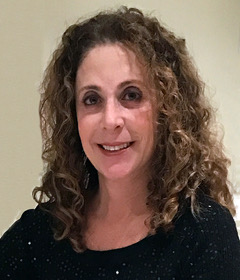Forgiving Our Offenders: Why It’s Good For Us
Times have changed. No longer are people willing to allow other, more powerful people, hurt them and remain silent. They’re done with ‘turning the other cheek,’ and just ‘letting it go.’ Nowhere is this more evident than dozens of accusers alleging movie mogel Harvey Weinstein with reported predatory behavior towards women.
It’s not stopping there. With unprecedented speed, daily headlines are bringing us names of other high profile men from a vast array of professional fields similarly identified of sexual misconduct, harassment or assault. The growing list of victims stepping forward include both men and women, some who were young children at the time they claim to have been assaulted, while others were teens or adults. The list of accused includes actors, writers, producers, company executives, journalists, celebrities, and lawmakers and political candidates.
Some of the accused have expressed remorse, while others deny the charges. Even though not a single case has yet been heard in court, many of the accused have suffered life altering personal and professional consequences, ranging from names removed from company mastheads, to movie, television and book deals lost, firings, and otherwise stellar careers ending abruptly.
Some women who had previously told their experiences of being victimized but didn’t feel heard, now feel vindicated. Others who kept their secrets shamefully buried feel relief that their oppressors are being punished.
But is this enough for the victims, or do they deserve more? As a society, we must look beyond punishment when someone has hurt another. We need to examine how to heal from these injuries. Healing comes through one word: forgiveness.
Forgiveness is about taking back our power. Victims experience powerlessness during an offense. But the pain they experience is so great they sometimes continue to give the offender their power long after the offender is no longer a threat. We can’t take our power back if we hold onto intense anger because it is that anger that connects us to the offender. So why don’t we release our anger? It’s because we feel it gives us a sense of power, protecting us against the person who caused us harm.
Oftentimes our support system, consisting of our family and friends, validates our right to hold onto our anger. Yet remaining angry causes us to look backward. We may find ourselves living in an angry rut, obsessively focusing on the hurtful behavior and our feelings of helplessness, fear and loneliness, even if the offender is incarcerated, lives far way, or is deceased. This anger keeps us living in the past instead of moving forward.
Even worse is the fact that by dwelling on our anger we’re changing our brains, and not in a good way. We have a processing center in our brain the size of two almonds called the amygdala that regulates emotions, emotional behavior and motivation. When activated by emotion the amygdala increases in activity, making us either fearful (and more avoidant) or angry (and more vengeful).
Our negative feelings toward the offender not only continue but also are at risk of escalation. If we replay the event again and again in our minds, wishing we’d said or done something differently, or wishing criminal or dire consequences upon the offender, anger can grow into rumination, and blame can intensify into retaliation. Worse yet, studies show that unresolved anger can be harmful to our body and our mind. Turned inward, anger triggers tension headaches, migraines and insomnia. The chemical imbalance caused by anger causes our metabolism to decrease and weight to increase. The stress from anger makes us at more risk for gastric ulcers and acid reflux. Our blood pressure may rise, increasing our risk of possible heart attack or stroke. In other words, as the saying goes, resenting someone is akin “to taking poison and expecting the other person to die.”
We deserve to be released from this never-ending sentence of suffering caused by the offender. Seeking forgiveness is a pathway to controlling our emotions, thinking and judgment. It enables us to experience positive feelings, contentment and inner peace.
Considerable research has been conducted in the value of forgiveness. Frederic Luskin, author of Forgive for Good, has identified the essential elements of forgiveness, and sorts out the myths between what is and is not forgiveness.
All too often people confuse forgiveness with pseudo-forgiveness, which is when we attempt to forgive prematurely. It’s attractive, because it is quick and easy and means the difficult and painful emotions that have to be experienced in achieving forgiveness are bypassed. Unfortunately for the victims, it means that they are still holding onto the anger and pain.
Forgiveness is a choice. It is done by the victim, solely for the good of the victim. It is personal and has no predetermined period of time during which it must be achieved. Each victim will forgive if and when they want, in the manner that works best for them. We are human, and we all experience hurt in different ways. Sometimes a hurt triggers an old wound residing deep within our memory. In such situations, we will feel more vulnerable and need extra time to emerge from our deep emotional pain.
Forgiveness also is not denial of harm done. Victims must not excuse or minimize the pain they received, as this would be condoning the hurtful behavior. There is no forgetting the behavior either, because we cannot wish away our memory. We can stuff it away, but we can never forget it. Allowing the event to remain in our memories is probably a good thing because we can learn from it, be more cautious going forward, and take steps to prevent ourselves from being hurt by this person again.
If anger is the greatest poisonous threat to forgiveness and our well-deserved state of happiness, then an apology appears to be the antivenin. When an offender can apologize, the victim may be able to change his or her perspective on both the offender and the offense, reducing the intensity of the anger, and move toward the path of detachment and forgiveness. Fortunately, forgiveness does not depend on the behavior of others, because all too often genuine remorse by the offender is not experienced and apologies are not expressed.
The good news is that with concerted effort, we can not only survive, but thrive. Neuroscientists have found that our brains are flexible and adaptive, and we can create new pathways in our brain that allow us to successfully resolve the burden of these painful emotions. This flexibility, called neuroplasticity, enables us to retrain our brains and create new pathways when we practice experiencing positive emotions. Much like going to the gym, we need to work at strengthening these new positive muscles.
The exciting news is that with time, the underused negative neural pathways associated with unforgiveness will atrophy and fade away and be replaced with more desirable pathways that contribute to our resiliency.
Creating new neural pathways allows us to change our story. Instead of carrying around emotional baggage that diminishes us, we can find more room for positive experiences. We will find the ‘gift’ inside our pain when we are able to identify our strengths, our clarity about what we value, and live life more fully.


